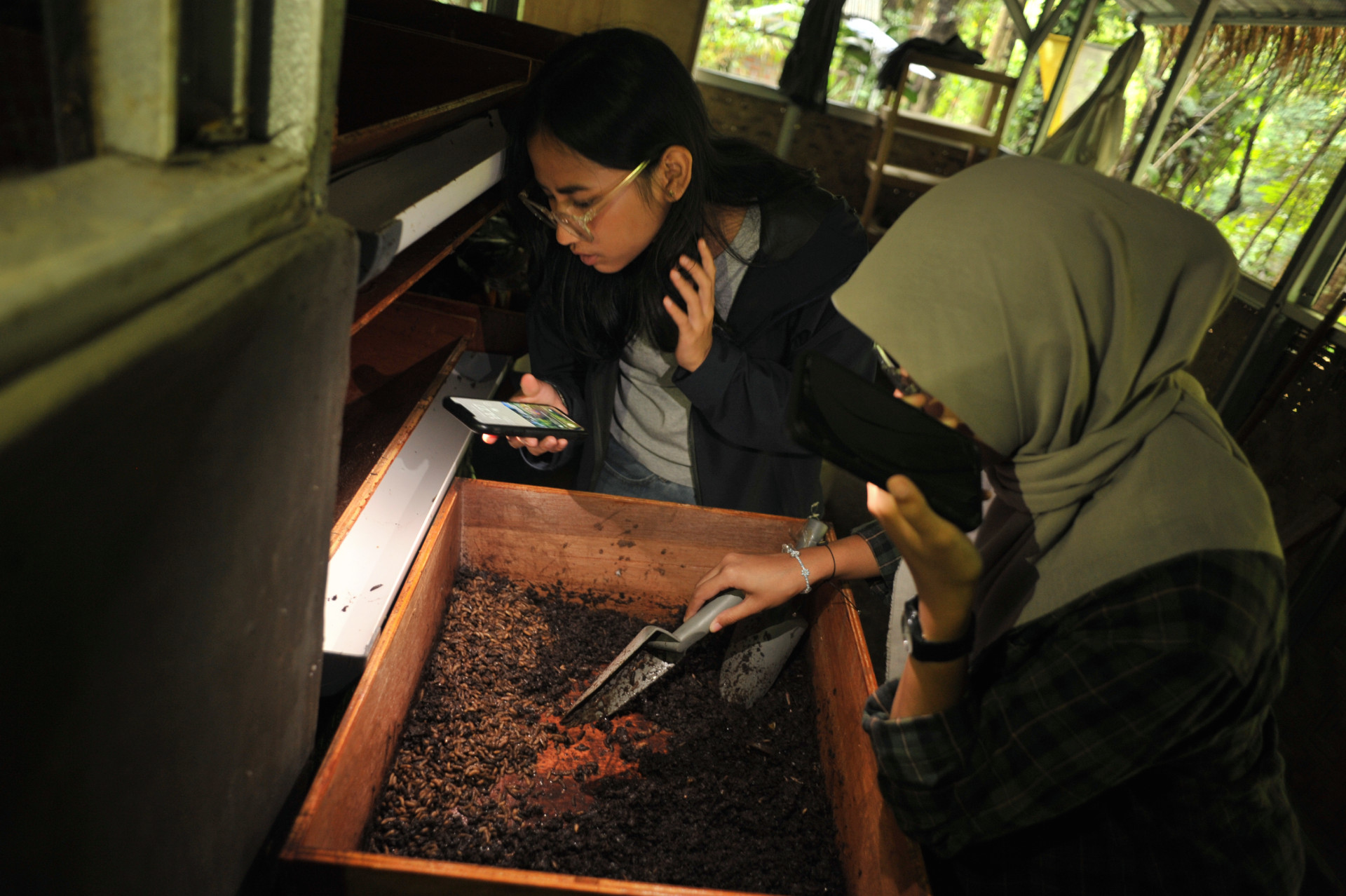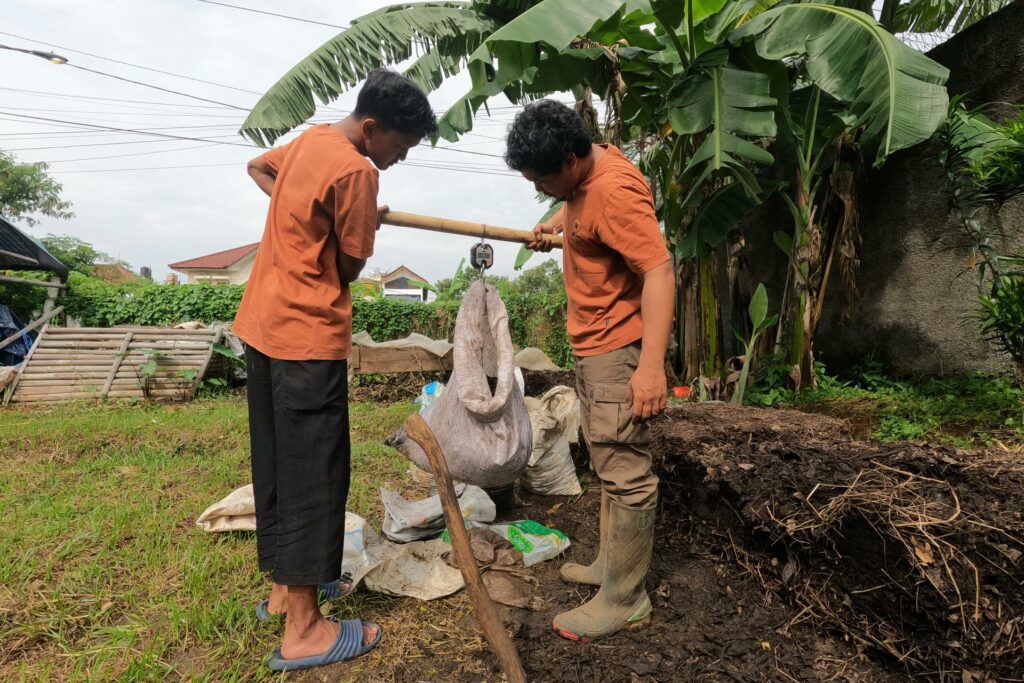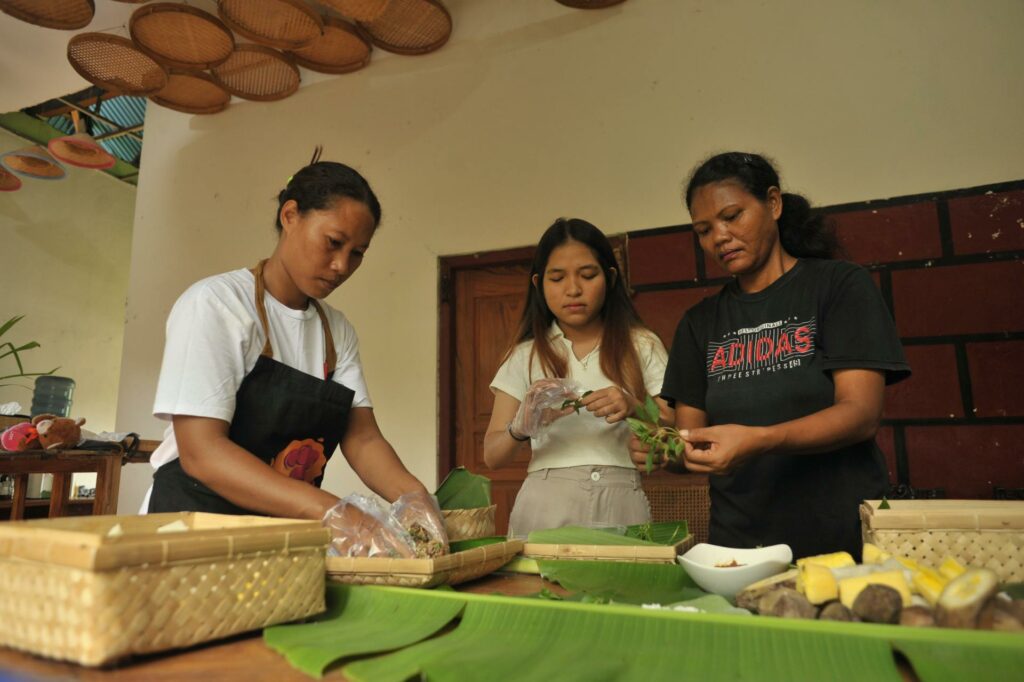
Uncategorized | May 20, 2024
Urban Futures Kick-Off: For the Home of Youth, With the Hope of Food Sustainability in Indonesia
Sri Handayani Nasution
In the UN Climate Change Conference 28 (COP 28), the government declared global food system transformation and resilience as the utmost priority and one of the solutions for the climate crisis stated in the Emirates Declaration on Sustainable Agriculture, Resilient Food System, and Climate Action. In the same forum, the Ministry of National Development Planning/National Development Planning Agency (Kementerian Perencanaan Pembangunan Nasional/Badan Perencanaan Pembangunan Nasional Republik Indonesia or Kementerian PPN/Bappenas), Suharso emphasized his commitment to transforming the national and local food system to be more inclusive, resilient, and sustainable.
In line with that governmental declaration, we see the urgency of multistakeholder and contextual efforts to achieve those goals. It manifests in our recently launched program, Urban Futures.
Climate action in formal settings often sidelines the contribution of the younger generation, albeit it is their future that is at stake, where climate crisis has become their burden to carry the detrimental effects of decades-long economic-centric and extractive policy. Our Urban Futures program centralizes the role of youth in every step to ensure the ‘inclusive’ term is not a mere performative, sweet, yet empty promise. We advocate for a forum and space for youth to collaborate with decision-makers, where their participation is not a decoration but a meaningful one. With Urban Futures, we chant that youth is the core of every climate action.
Another problem persists. Decision-makers often formulate top-down policies, neglecting the context of local resilience, which is deeply rooted in each community. The policies, for instance, often apply one-for-all principles that exempt each area’s diverse and multifaceted layers.
For instance, the narrow imagination of high-rise buildings is ingrained in the word ‘urban,’ causing the focus on food system challenges in the stereotypical perception of urban areas, which, unsurprisingly, does not apply to every city, at least not in Indonesia.

If we set foot in Bandung and West Manggarai, two implementation cities of Urban Futures, they offer vibrant societies and cultures with specific problems in their food system. West Manggarai, the coastal town located in East Nusa Tenggara, offers an ocean view, while Bandung, located in West Java, is surrounded by land. The geographical differences and physical distance from the national government pose different challenges and progress in their food systems.
In Bandung, the food sector is one of the largest economic sectors, and women and marginalized communities, including youth, who work in this sector face the risk of unequal wages and a lack of market knowledge. In West Manggarai, tourism dominates the local economy, which causes another problem: tremendous waste management crises accompany/that come with tourists.

We launched our program at the national and regional levels through these two cities in December 2023, January 2024, and March 2024. On this occasion, we created an initial multistakeholder launching event where cross-sectoral actors celebrated the start of the 5-year long program. With a similar format, the national and regional level provides insights from the government, implementing partners, and youth themselves—inviting inspiring local youth who have first-hand experience within the food system.
We realize meaningful changes would only exist with the political will of the government. Sitting at the same table with diverse stakeholders, the government commits itself to ensuring an inclusive food system in a sustainable city in collaboration with civil society organizations (CSOs).
Urban Futures aspires to answer the identified challenges and become a multistakeholder network, with the active and central participation of local youth, in the hope of inclusive intervention and solutions.
In collaboration with the national and local governments, we envision cities that are liveable and independent, with an accessible food system that provides healthy commodities at affordable prices for all. In every aspect, we want to ensure that the youth step forward and assume the leadership role, for it is their rights to decide their future and for their homes to flourish.

